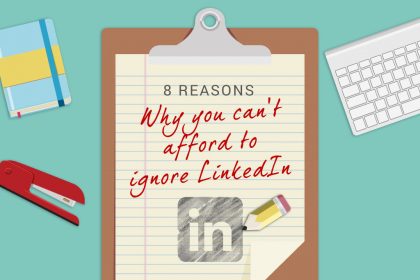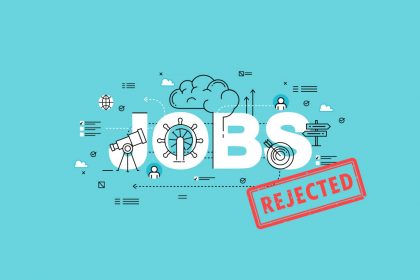How to follow up after a job interview
Wondering when you’ll hear back from a job interview – and what to do if you don’t? Here’s how to follow up after a job interview.
So you’ve gone through numerous stages to get to the final interview, you’re feeling pretty confident and you’ve got a good idea of the role, company, team etc. You’re interested.
However, it’s been three days and you still have no feedback. And you’re starting to wonder… Are they not interested? Why won’t they hire me? Are they just busy? Should I chase?
What should you do in this case? Let’s be honest, there is a huge difference between coming across interested in a role and looking desperate. Plus, annoying the recruiter won’t help, whether they are agency or in-house.
Make sure you ask this question at the end of your job interview
So let’s explore your potential next steps if you haven’t heard back after a job interview.
To start, let’s assume you’ve been told by the person responsible for sourcing this role that this is a final stage and next steps will be offer, (if you are successful, of course). The best way to tackle this is to ask a crucial question at the end of your interview: “What happens next?”
Firstly, this makes you seem genuinely interested in the role. But more importantly, it will give you some idea about how the process works. For example, you don’t want to chase them after 24 hours, if you’ve been told a decision won’t be made for the next week.
However, if you are expecting a call after 48 hours and it’s been four days, you are well within your rights to ask for an update. If you have no idea of timescales, you will probably feel on edge waiting around.
How to follow up after your job interview
After an interview, I always advise candidates to send the interviewer(s) a quick email or LinkedIn message to thank them for their time. Connect with them on LinkedIn too, if you haven’t already.
Why do this? Because it’s polite, it makes you seem interested and it shows good people skills that you have taken a few minutes out of your day to thank them. It may sound simple, but it’s surprising how often this doesn’t happen.
You can also use this as an opportunity to outline the reasons why you would be suitable for the role and a good cultural fit to the organisation etc. If you managed to pick up on something that you had in common with them in the interview, then certainly mention that too.
To give you an idea of how these messages can work, I’ve drafted a quick example:
Hi Lottie,
Thank you for taking the time to meet with me earlier.
It was great to find out more about Fruitly inc. and as a former nutritionist, it was particularly exciting to hear about the launch of the new healthy range!
(It was also great to meet someone who loves Yoga as much as I do!)
Please let me know if there’s anything you need from me, otherwise I look forward to hearing from you.
Kind Regards,
Jane
You’ve got nothing to lose by doing this; nothing negative will come from you sharing a positive reflection of the interview. Remember to keep it short and sweet, they know everything they need to know from the interview.
*TIP* – If you didn’t manage to ask your interviewer about the process, during the interview (“When can I expect to hear from you?”) then now is the time to do so!
How to chase up after a job interview
If you don’t hear any feedback within the timescales they discussed with you, then you should chase. Remember though, there is a huge difference between coming across interested in a role and looking desperate (or even like a stalker). So know when to call it a day.
Calling an interviewer repeatedly and leaving numerous voicemails won’t go down well. At this point, I’d advise to keep things short and sweet again. Here’s an example:
Hi Lottie,
I hope you are well.
It’s been a few days since I interviewed for the Marketing Manager role at Fruitly inc. so I just wanted to check whether there are any updates at all, as I remember you mentioning that Thursday was the deadline.
Kind Regards,
Jane
There could be a number of reasons why the feedback is taking a while, so don’t get frustrated. Just wait and see what they have to say.
How to respond to feedback
Always respond to any feedback you’re given, whether it’s good or bad. Don’t burn bridges and remember the way you act will affect your reputation, so always remain positive.
There’s two ways of looking at this. Firstly, if they make an offer, great news! However, make sure you know everything there is to know, you have all your questions answered and you are happy with the final offer before accepting.
On the other hand, if you are rejected, there is of course a professional way of dealing with this.
It’s important to stay calm and remember you might not know the exact circumstances. If nothing else, think: if the successful candidate declines the offer, you may be second in line.
Sometimes, the organisation may inform you that you have been unsuccessful, but they may not tell you why. If not, ask for those reasons as it will help you improve for future opportunities.
If the feedback is negative, here is an example of how you can respond:
Hi Lottie,
Thank you for your email.
I appreciate your feedback, it’s a shame it didn’t work out on this occasion. However, this will give me the opportunity to improve upon my interview skills in the future.
I would still love the opportunity to work for a company like Fruitly inc. in the future and I appreciate you taking the time to consider my profile in the first place.
Best of luck in the future.
Kind Regards,
Jane
Leaving things on a good note will really help you to keep a professional reputation and help maintain the relationship.
It’s important to keep things friendly and think long-term, as perhaps there is a position in the future you might be considered for.
Need more job hunting tips?
You’ll find more job hunting advice in these articles:
- What should you include in your CV?
- How to prepare for a successful job interview
- The three questions you need to ask before accepting a job
- Frustrated at STILL being unemployed? Four new strategies to help you find a job
Written by Sadiye Booker from A Career Focused Insight.
Photo by Elijah Hiett










